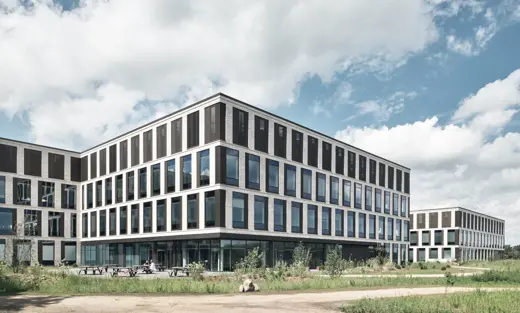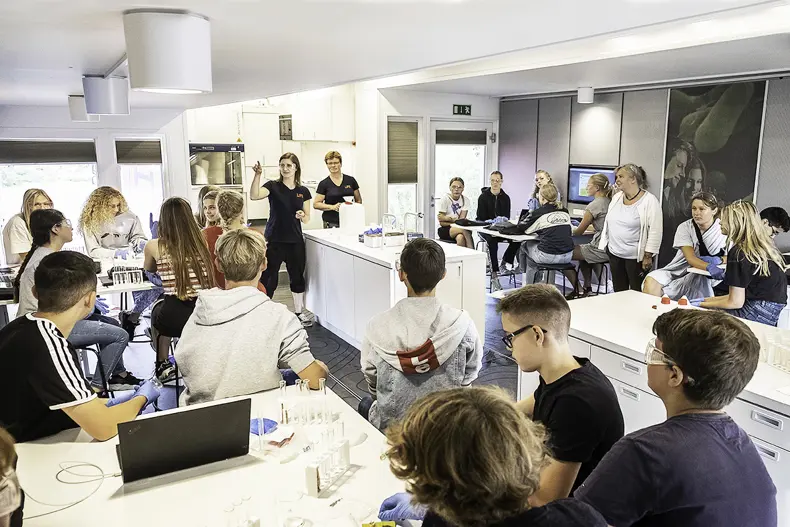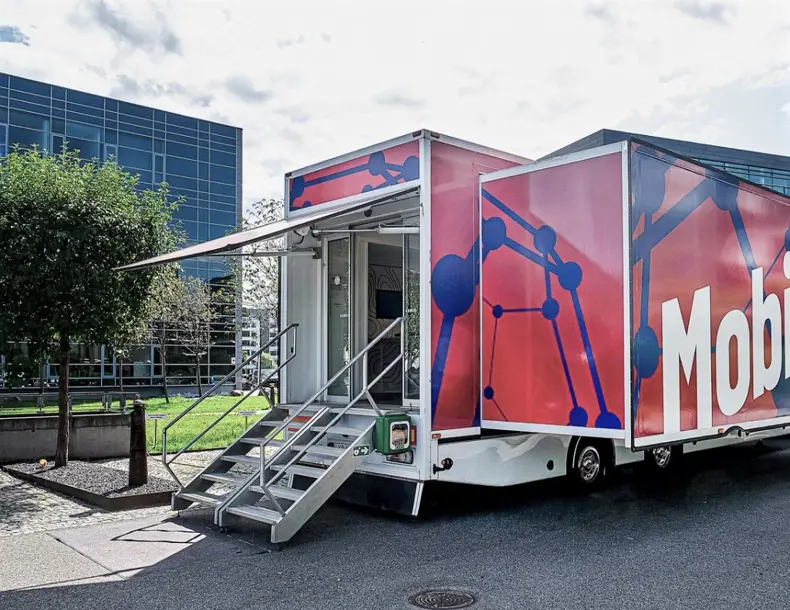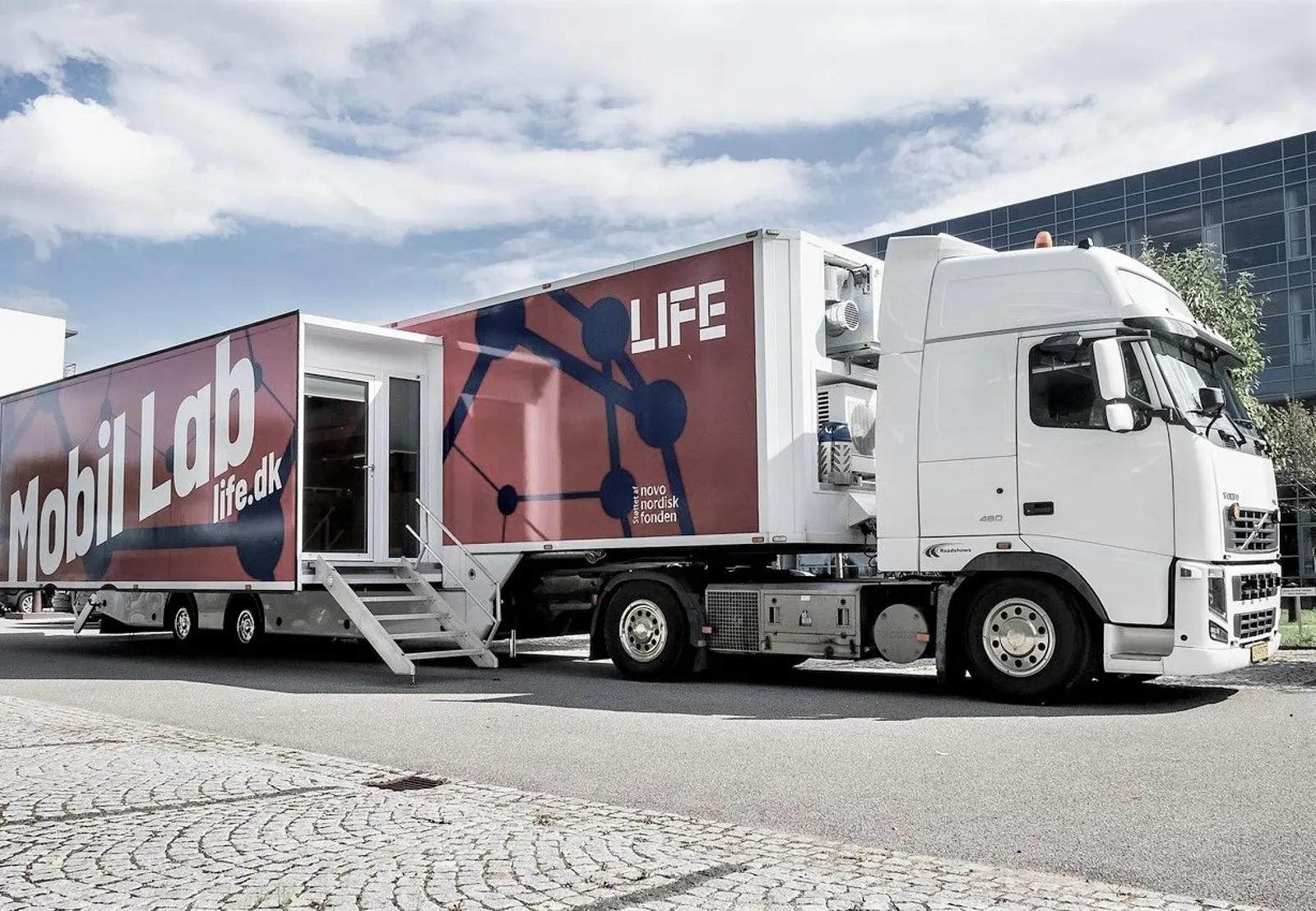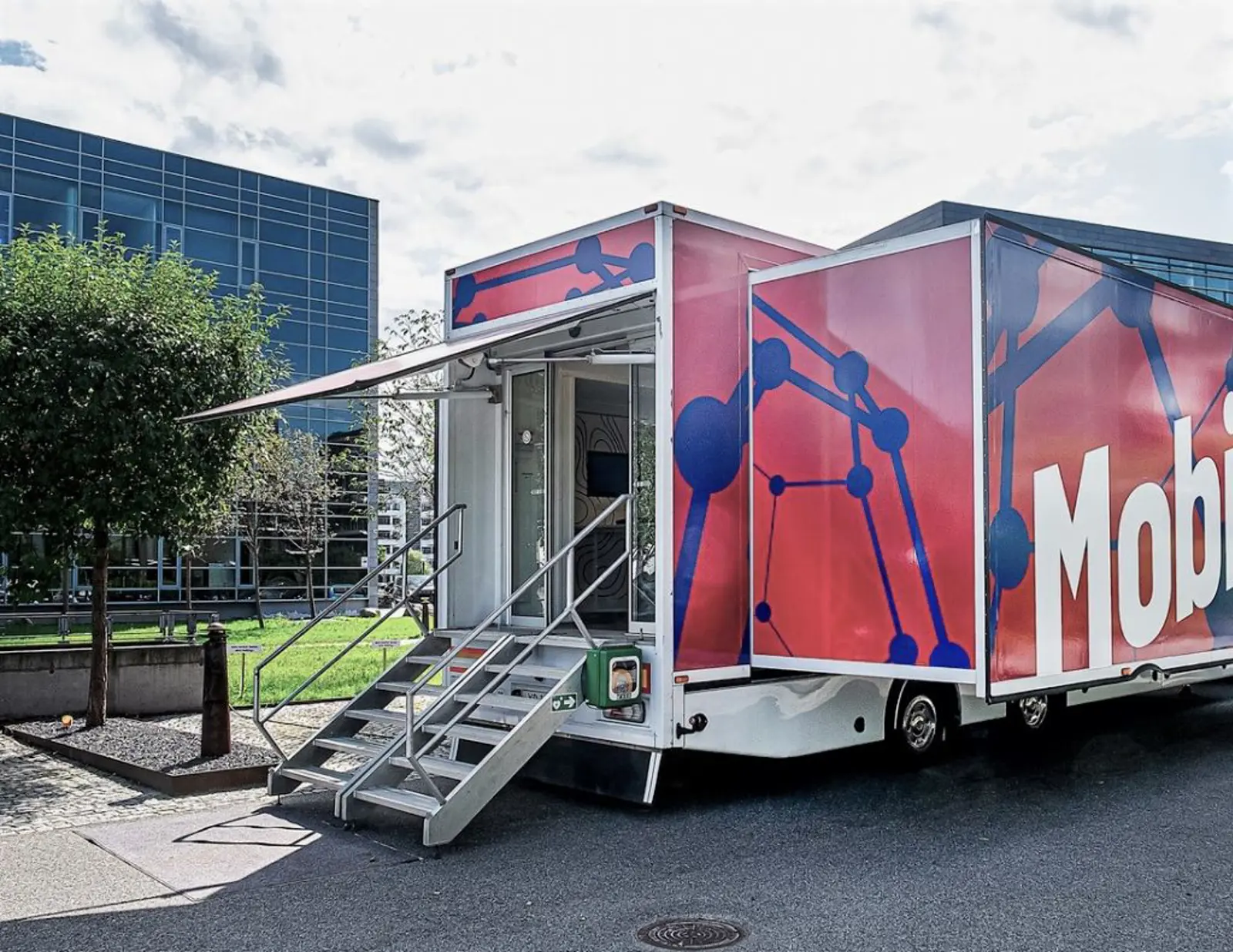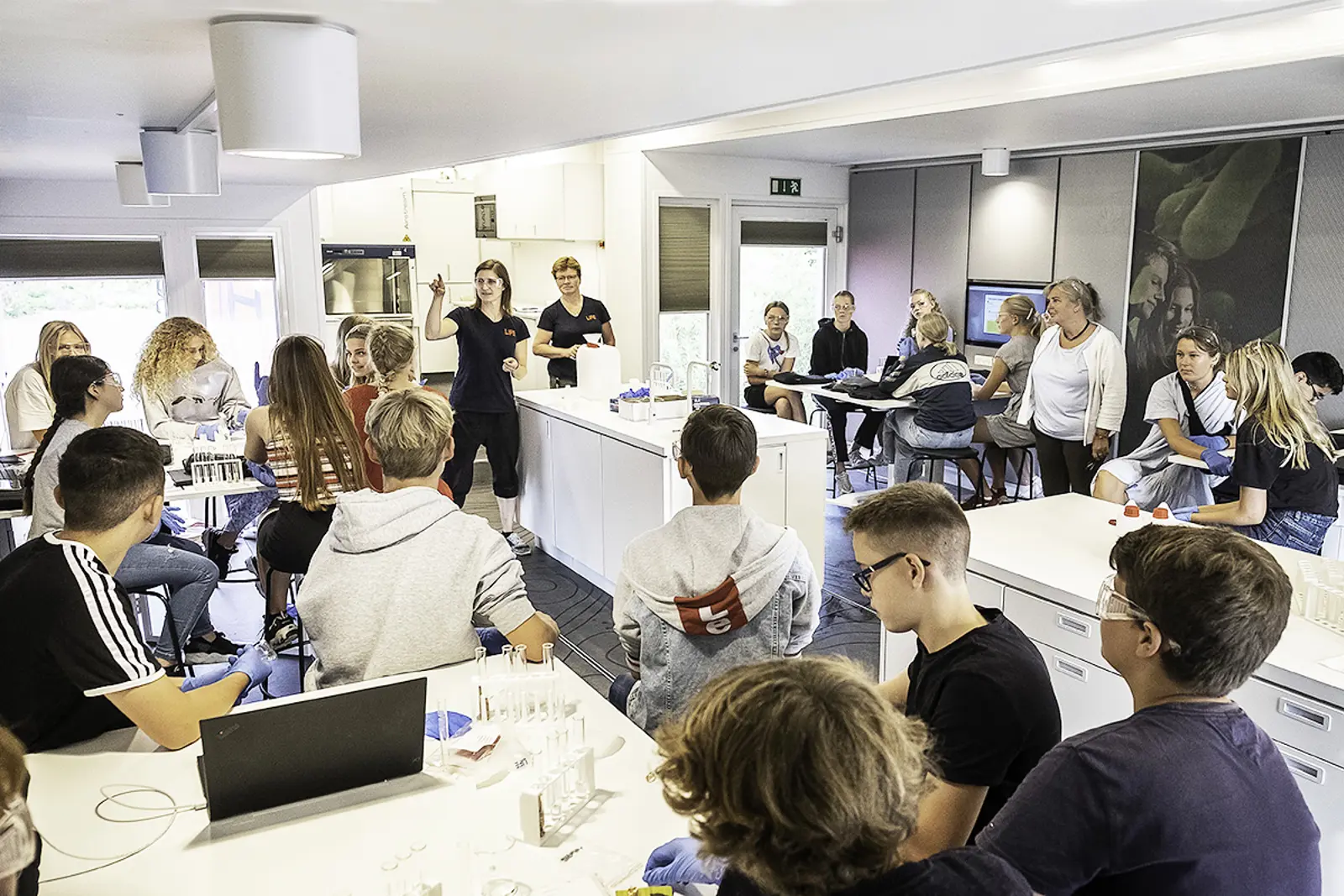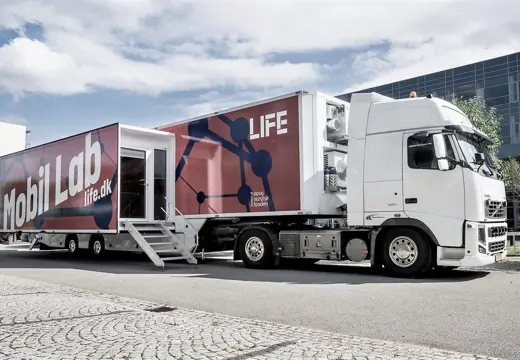“With LIFE, together with the schools, we want to inspire realistic and experimental science teaching in the broadest sense of the word. Astonishment, creative joy and curiosity are the focus of a long-term effort to strengthen the STEM subjects and science education, ”says Christine Antorini, Director of LIFE.
STEM covers subjects within Science, Technology, Engineering and Mathematics.
Flexible interior design provides flexible learning
LIFE Mobile Lab contains facilities that can support the schools’ work with science teaching courses. The interior includes a chemical cabinet, gas, point suction, stereo magnifiers, microscopes, freezer and refrigerator, dishwasher and LAF bench – all interiors are learning and research elements that are also used in companies and at universities.
There are five large group tables, each with its own screen, which can be connected to equipment with a camera. In the middle, a large screen is connected to the LAF bench, so that all students can follow in detail what is happening in the LAF bench. Several tables are flexible and can be moved around if there is a need to adapt the division and layout in relation to the teaching in the individual class.
Flexibility was crucial in the design of the LIFE Mobile Lab. Space is very limited and the decor must be suitable for children at different ages. They move differently, and receive instruction differently. Therefore, the decor can be adjusted so that the children receive inspiring learning at eye level, ” says Thomas West, partner in Vilhelm Lauritzen Arkitekter, who designed and decorated the rolling laboratory.
Every cubic centimeter is utilized and optimized
Teaching consultants from LIFE carry out the teaching in collaboration with the class teacher in courses that span a wide, scientific field, from enzymes, microorganisms and sensor technology to the riddle of cancer. Among other things, they have participated in the design process to ensure space for all necessary tools and elements.
“We have utilized every cubic centimeter and calculated everything in millimeters to make room for the necessary things, such as work space on the tables, set-ups for experiments and storage,” says Janet Cohen Muntz, laboratory specialist at Vilhelm Lauritzen Arkitekter.
The design of the LIFE Mobile Lab is universal, and although space is limited, the design team has room for everyone. The flexible design makes it i.a. possible for example for children in wheelchairs to participate in teaching and experiments.
The purpose of laboratories on wheels is to give the practical and experimental part of science teaching an extra boost and arouse children’s interest in science. The flexible function and mobility makes it possible to get around the whole country, so it is not only schools close to LIFE Campus in Kongens Lyngby that learn with LIFE.
By 2023, five mobile laboratories will drive around the country.
